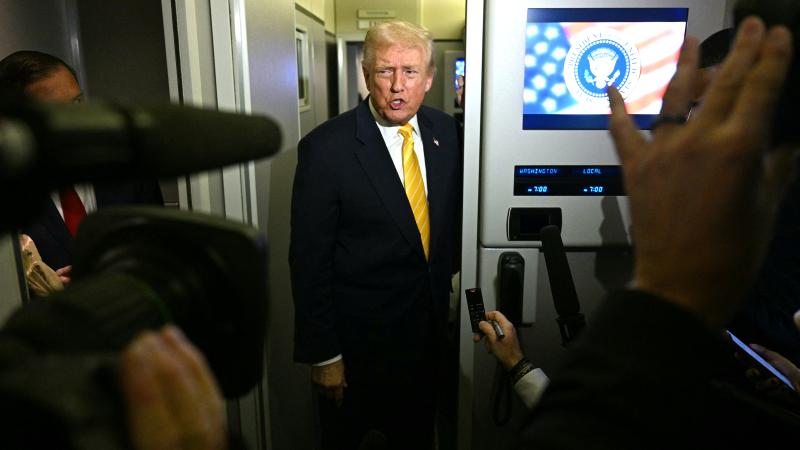President Biden pardons and reduces sentences of people jailed for non-violent drug crimes
The president said his pardons will give the non-violent drug offenders a “second chance,” and said the sentences that were imposed on those who received clemency were much longer than they would be if convicted now.
President Joe Biden issued full pardons for 11 people convicted of non-violent drug crimes on Wednesday, and reduced the sentences of five drug dealers.
Biden pardoned thousands of Marijuana users last December, who had used or possessed the drug on federal property, and commuted the sentences of 11 people who had committed non-violent drug crimes.
The president said his pardons will give the non-violent drug offenders a “second chance,” and said the sentences that were imposed on those who received clemency were much longer than they would be if convicted now.
“America is a Nation founded on the promise of second chances. During Second Chance Month, we reaffirm our commitment to rehabilitation and reentry for people returning to their communities post incarceration,” Biden said in a statement. “The pardon recipients have demonstrated their commitment to improving their lives and positively transforming their communities. The commutation recipients have shown that they are deserving of forgiveness and the chance at building a brighter future for themselves beyond prison walls.”
Some of those pardoned were sentenced as early as the 1980s. Beverly Holcy from Palatka, Florida, was sentenced in 1994. She was sentenced to five years in prison, and four years of supervised release. Since getting out of prison, she has kept a full-time job, and volunteers at her church and other community activities, according to USA Today.
Another person who was pardoned is Katrina Polk, a Washington D.C. resident who pleaded guilty to a non-violent drug offense when she was 18 in 1988. Since her release, she has received her Ph.D. in public policy, and is an advocate for the elderly.
Glenn Ray Royal Jr. from San Antonio, Texas, has also received a college degree since his release, worked in the information technology field, and is now a mentor for college students. He was sentenced to two and a half years in prison when he was 20.
Biden also reduced sentences for people were originally slated to spend to at least five years in jail. Most were sentenced to serve more than 10 years and one, Jophaney Hyppolite, was sentenced to life in prison. Hyppolite's sentence was commuted to 30 years in prison, and 10 years of supervised release. The sentence began in 2013.
















